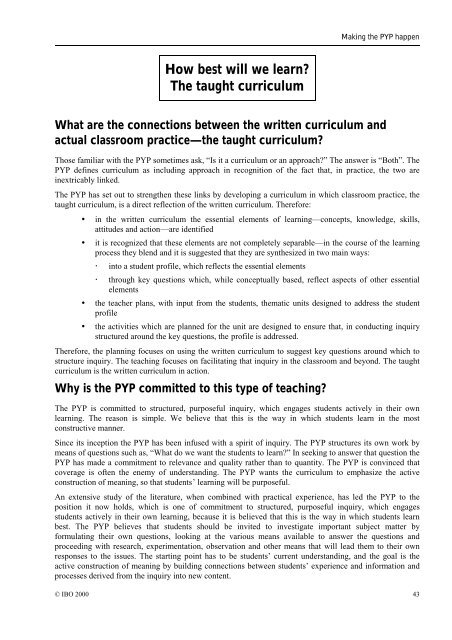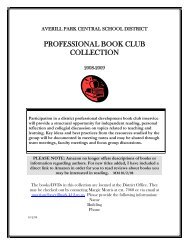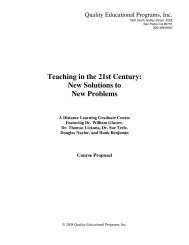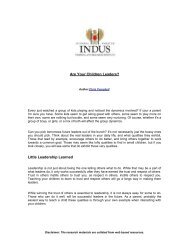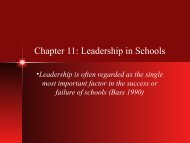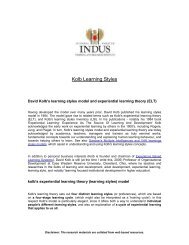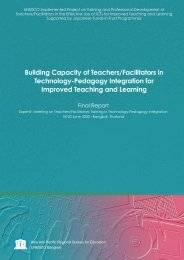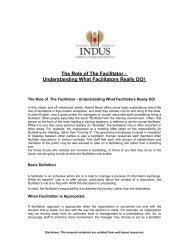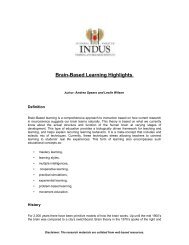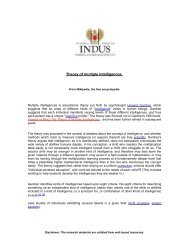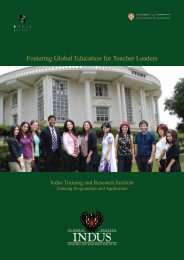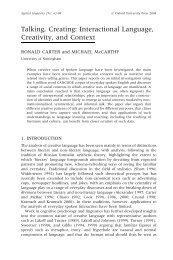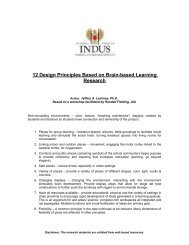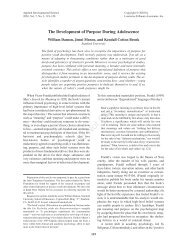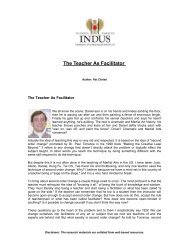Primary Years Programme Making the PYP happen - ITARI
Primary Years Programme Making the PYP happen - ITARI
Primary Years Programme Making the PYP happen - ITARI
- No tags were found...
Create successful ePaper yourself
Turn your PDF publications into a flip-book with our unique Google optimized e-Paper software.
<strong>Making</strong> <strong>the</strong> <strong>PYP</strong> <strong>happen</strong><br />
How best will we learn<br />
The taught curriculum<br />
What are <strong>the</strong> connections between <strong>the</strong> written curriculum and<br />
actual classroom practice—<strong>the</strong> taught curriculum<br />
Those familiar with <strong>the</strong> <strong>PYP</strong> sometimes ask, “Is it a curriculum or an approach” The answer is “Both”. The<br />
<strong>PYP</strong> defines curriculum as including approach in recognition of <strong>the</strong> fact that, in practice, <strong>the</strong> two are<br />
inextricably linked.<br />
The <strong>PYP</strong> has set out to streng<strong>the</strong>n <strong>the</strong>se links by developing a curriculum in which classroom practice, <strong>the</strong><br />
taught curriculum, is a direct reflection of <strong>the</strong> written curriculum. Therefore:<br />
! in <strong>the</strong> written curriculum <strong>the</strong> essential elements of learning—concepts, knowledge, skills,<br />
attitudes and action—are identified<br />
! it is recognized that <strong>the</strong>se elements are not completely separable—in <strong>the</strong> course of <strong>the</strong> learning<br />
process <strong>the</strong>y blend and it is suggested that <strong>the</strong>y are syn<strong>the</strong>sized in two main ways:<br />
" into a student profile, which reflects <strong>the</strong> essential elements<br />
" through key questions which, while conceptually based, reflect aspects of o<strong>the</strong>r essential<br />
elements<br />
! <strong>the</strong> teacher plans, with input from <strong>the</strong> students, <strong>the</strong>matic units designed to address <strong>the</strong> student<br />
profile<br />
! <strong>the</strong> activities which are planned for <strong>the</strong> unit are designed to ensure that, in conducting inquiry<br />
structured around <strong>the</strong> key questions, <strong>the</strong> profile is addressed.<br />
Therefore, <strong>the</strong> planning focuses on using <strong>the</strong> written curriculum to suggest key questions around which to<br />
structure inquiry. The teaching focuses on facilitating that inquiry in <strong>the</strong> classroom and beyond. The taught<br />
curriculum is <strong>the</strong> written curriculum in action.<br />
Why is <strong>the</strong> <strong>PYP</strong> committed to this type of teaching<br />
The <strong>PYP</strong> is committed to structured, purposeful inquiry, which engages students actively in <strong>the</strong>ir own<br />
learning. The reason is simple. We believe that this is <strong>the</strong> way in which students learn in <strong>the</strong> most<br />
constructive manner.<br />
Since its inception <strong>the</strong> <strong>PYP</strong> has been infused with a spirit of inquiry. The <strong>PYP</strong> structures its own work by<br />
means of questions such as, “What do we want <strong>the</strong> students to learn” In seeking to answer that question <strong>the</strong><br />
<strong>PYP</strong> has made a commitment to relevance and quality ra<strong>the</strong>r than to quantity. The <strong>PYP</strong> is convinced that<br />
coverage is often <strong>the</strong> enemy of understanding. The <strong>PYP</strong> wants <strong>the</strong> curriculum to emphasize <strong>the</strong> active<br />
construction of meaning, so that students’ learning will be purposeful.<br />
An extensive study of <strong>the</strong> literature, when combined with practical experience, has led <strong>the</strong> <strong>PYP</strong> to <strong>the</strong><br />
position it now holds, which is one of commitment to structured, purposeful inquiry, which engages<br />
students actively in <strong>the</strong>ir own learning, because it is believed that this is <strong>the</strong> way in which students learn<br />
best. The <strong>PYP</strong> believes that students should be invited to investigate important subject matter by<br />
formulating <strong>the</strong>ir own questions, looking at <strong>the</strong> various means available to answer <strong>the</strong> questions and<br />
proceeding with research, experimentation, observation and o<strong>the</strong>r means that will lead <strong>the</strong>m to <strong>the</strong>ir own<br />
responses to <strong>the</strong> issues. The starting point has to be students’ current understanding, and <strong>the</strong> goal is <strong>the</strong><br />
active construction of meaning by building connections between students’ experience and information and<br />
processes derived from <strong>the</strong> inquiry into new content.<br />
© IBO 2000 43


